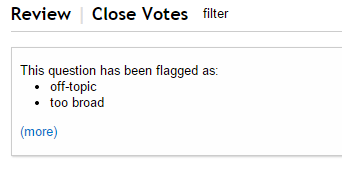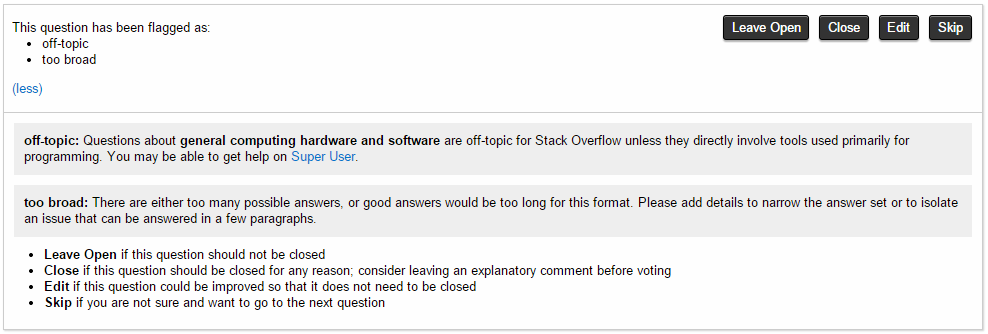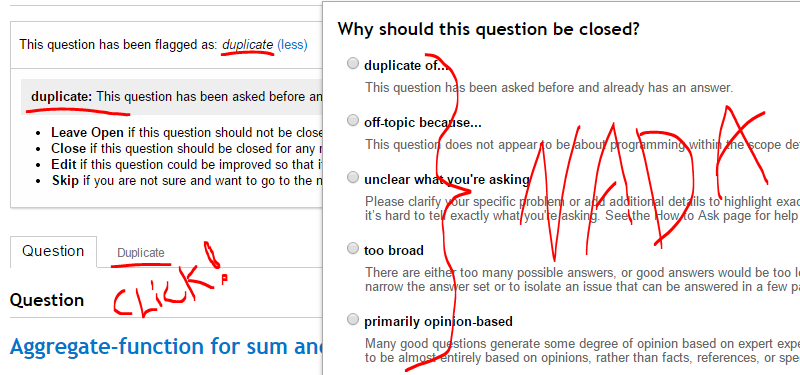When reviewing LQPs or Close votes which are not obviously low quality at first sight, I sometimes click “Recommend Deletion” or “Close”, only to see what previous voters might have spotted.
Clicking the Close button in such a case does not mean that I intend to actually vote for closing. It means that I'm trying to get more information to find out what could be wrong with the post.
Now this got me fail a review of an obviously great answer. While reviewing, I thought: “What could be wrong with an answer that received +300 bounty?”. So I clicked “Recommend Deletion” – bam, fail.
In my opinion, “Recommend Deletion” audits should only trigger after the vote was actually submitted. It's not like an edit, where the audit would let the reviewer spend several minutes improving the post until he/she learns that it was only an audit.
Update (thanks @gnat): This observation apparently applies only to audits on LQP answers, but not on LQP questions, which is even more confusing.
(See also this related Meta discussion: Audit review failed too quickly)
Not enough, this failed audit brought me a review ban. As I knew that this was bound to happen some day, I've been collecting strange failed audits.
I know, I know … downvote the original posts etc. … but there are so many bad posts with extremely high upvotes, which are used for reviews. It's really annoying, because a failed review implies that you're doing sloppy reviews on purpose or at least negligently (“Stop and Listen!”).
So I decided to post a selection of some strange failed audits for the enjoyment of the community. Have a look at those and decide how you'd have voted.
https://stackoverflow.com/review/close/6002574
https://stackoverflow.com/review/reopen/6041099
https://stackoverflow.com/review/reopen/6048125
https://stackoverflow.com/review/reopen/6111377
https://stackoverflow.com/review/low-quality-posts/6142243 (really great one)
These are only the real WTFs; I had some edge cases, too. (Edge cases are reviews that are not strictly compliant with the rules, but are usually well-received and not sanctioned.)
And, I admit, some of my reviews could have used a bit more attention, and failing the audit could have been avoided.


